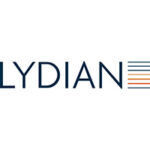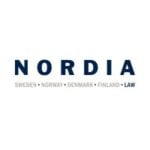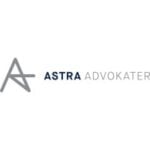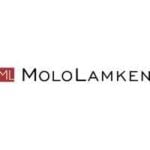-
What are the key financial crime offences applicable to companies and their directors and officers? (E.g. Fraud, money laundering, false accounting, tax evasion, market abuse, corruption, sanctions.) Please explain the governing laws or regulations.
In Argentina, the key financial crime offences applicable to companies and their directors and officers include fraud, money laundering, false accounting, tax evasion, market abuse, corruption, sanctions evasion, and terrorism financing, among others.
First, fraud involves deceit, false representation, or omission intended to deceive others to gain financial or other benefits. The governing law are Articles 172 and 173 of the Argentine Penal Code (Código Penal de la Nación), which addresses various forms of fraud, including fraud against individuals, companies, and the state, typifying even different modalities of frauds – such as electronic frauds, banking frauds, etc.
Second, money laundering, which could be defined as the process of making illegally-gained proceeds (i.e., “dirty money”) appear legal. The governing law are the Articles 303 (for individuals) and 304 (for companies liability) of the Argentine Penal Code. Also regulated by the Law No. 25,246, amended by Law No. 26,683. These laws regulate money laundering activities and the duties of obliged persons, who are controlled by the Financial Information Unit (Unidad de Información Financiera, UIF).
Third, false accounting, which involves the deliberate manipulation of financial records to present a false picture of a company’s financial health. The governing law is, again, the Argentine Penal Code. This law penalises falsification of documents and false accounting records in the Article 300 (2). Also the Law No. 19,550 (the Argentine Companies Law) includes provisions related to the accuracy of corporate records and the duties for the companies and their directors.
Four, tax evasion, which is the illegal act of not paying taxes owed to the government. Governed by the Law No. 24,769 (Tax Criminal Law). This law establishes the penalties for tax evasion and related offences. The Customs Revenue and Control Agency (Agencia de Recaudación y Control Aduanero, ARCA) is responsible for enforcement. Also governed by the No. 11,683 (Procedural Tax Law), particularly Article 1 and Article 2. Directors may be prosecuted if they knowingly facilitate the evasion.
Five, market abuse, which includes insider trading, market manipulation, and other activities that distort financial markets. The governing laws are the Argentine Penal Code, Articles 307 to 316, the Law No. 26,831 (Capital Markets Law), specifically Article 117 (insider trading) and Article 118 (manipulation of market prices), and the regulations from the National Securities Commission (Comisión Nacional de Valores, CNV). The CNV monitors and enforces compliance. Both individuals and legal entities may be held accountable. Sanctions may include fines, suspension, or criminal charges.
Six, corruption, which includes bribery, embezzlement, and other improper actions by officials or private individuals to gain undue advantage. The governing law is the Law No. 27,401 (Corporate Criminal Liability Law) holds companies accountable for corruption offences. The Argentine Penal Code also contains provisions against corruption in the Articles 256 to 268 for both individuals and companies.
Seven, sanctions violations, which involve conducting business with entities or individuals subject to government sanctions. Argentina adheres to international sanctions regimes (e.g., resolutions and recommendations from the United Nations Security Council or the Financial Action Task Force) and has a combination of decrees, laws, and resolutions that align with those international standards. The international sanctions regime is regulated by Law No. 24,156 and regulatory measures set by the UIF. Although sanctions violations are not comprehensively codified, relevant breaches may trigger prosecution under laws addressing terrorism financing (Article 306 of the Criminal Code). Enforcement is carried out by various agencies, including the UIF, the Ministry of Foreign Affairs, and the Central Bank. Penalties for violations can be severe, underscoring the importance of compliance for companies and individuals. For that reason, companies and their directors and officers must ensure compliance with these laws through internal controls, compliance programs, and cooperation with regulatory bodies. Penalties for violations can include fines, imprisonment, and other legal consequences, depending on the severity and nature of the offence.
Eight, environmental violations, which involves violating environmental laws and regulations, causing harm to the environment, in accordance with Law No. 24,051 (Hazardous Waste Law) and Law No. 25,675 (General Environmental Law). Both laws impose penalties for environmental offences, including fines and imprisonment.
Nine, terrorism financing, could be defined as the act of directly or indirectly collect or provide funds, assets, or resources, by any means, with the intention or knowledge that they will be used, in whole or in part, to finance the commission of terrorist offences. The legal framework for sanctioning terrorism financing in Argentina is robust and aligns with international standards. Key law in this field is the Article 306 of the Argentine Penal Code. There are other laws that govern this crime, such as Law No. 26,268 and Law No. 25,246, supported by regulatory decrees and UIF resolutions. The UIF, Ministry of Justice and Human Rights, and the Central Bank play crucial roles in enforcing these laws, ensuring compliance, and imposing penalties for violations.
These are the main, more severe and most common offences applicable to companies and their directors and officers, according with the Argentine criminal law framework.
-
Can corporates be held criminally liable? If yes, how is this determined/attributed?
Yes, according to Argentine criminal law, corporates can be held criminally liable. This is primarily governed, as could be seen, by Law No. 27,401, which establishes the legal framework for corporate criminal liability. According to that law, legal entities, including corporations, can be held criminally liable for certain offences committed either directly or indirectly on their behalf, interest, or benefit. The key offences include:
- Bribery and other forms of corruption (both domestic and transnational) (Articles 258 and 258 bis of the Criminal Code);
- influence peddling (Article 256 bis);
- illicit enrichment of public officials and employees (Article 268(1)); and
- false balance sheets and reports to cover up illicit activities (Article 300(2)).
For a corporation to be held criminally liable, under Article 2 of Law No. 27,401, the offence must meet two specific requirements. First, the illegal act must be committed by individuals who are representatives, directors, managers, employees, or anyone acting on behalf of the corporation. Second, the offence must be committed in the interest or to the benefit of the corporation.
In that sense, one of the critical aspects of the law is the implementation of adequate compliance programs. Corporations can mitigate or avoid liability according to Article 9 if they have in place an effective compliance program that includes: a code of ethics; periodic training for employees and officers; internal policies to prevent and detect illegal acts; internal reporting mechanisms, and a person or body responsible for monitoring compliance.
Moreover, corporations can mitigate their liability by self-reporting the offence before the start of an investigation; cooperating with the investigation and providing evidence; and implementing or improving compliance programs post-offence. Otherwise, penalties for corporations found guilty of criminal offences can include fines (calculated as a percentage of the benefit obtained or the potential harm caused); suspension of activities; disqualification from participating in public bids or contracts; and even the cancellation of the legal entity’s registration, among other sanctions.
The process for determining corporate criminal liability involves an investigation. Prosecutors and investigators gather evidence of the alleged offence. After that, the illegal acts must be attributed to individuals acting on behalf of the corporation. If sufficient evidence is found, the case proceeds to court where the corporation can present its defence, including the existence of a compliance program. In the end, a judge – or judicial body – determines the corporation’s liability and imposes appropriate penalties if found guilty.
-
What are the commonly prosecuted offences personally applicable to company directors and officers?
The most common prosecuted offences applicable to company directors and officers in Argentina are frauds (in all its modalities), money laundering, and tax evasion.
-
Who are the lead prosecuting authorities which investigate and prosecute financial crime and what are their responsibilities?
In Argentina, several key authorities are responsible for investigating and prosecuting financial crimes, including the financing of terrorism, money laundering, fraud, tax evasion, and corruption. Each authority has specific responsibilities and powers to ensure effective enforcement of financial crime laws.
The most important authority is the Public Prosecutor’s Office, an independent body responsible for prosecuting criminal cases, including financial crimes. Within their responsibilities are investigate and prosecute, that is, conduct investigations, initiates criminal proceedings, and prosecutes individuals and entities involved in financial crimes. For that purpose, inside this office are specialised units for specific financial crimes, such as the Unit for Economic and Complex Crimes (Unidad Fiscal de Investigaciones de Delitos Económicos y Complejos), the Unit for Administrative Investigations (Procuraduría de Investigaciones Administrativas, PIA), and the Unit for Economic Crimes and Money Laundering (Procuraduría de Criminalidad Económica y Lavado de Activos, PROCELAC). Each unit has their own applicable framework; and each one conducts investigations and denounces before the criminal federal Argentine courts.
On a second step is the UIF, which is the main regulatory body responsible for preventing and combating money laundering and the financing of terrorism. Within their responsibilities are the monitoring and analysis of financial transactions, suspicious activity reports (SARs), and potential financial crimes. The UIF also issues regulations and guidelines for financial institutions and other obligated entities to prevent money laundering and terrorism financing, in collaboration with law enforcement agencies, the judiciary, and international bodies to coordinate efforts against financial crimes. It can initiate investigations, file complaints with the Public Prosecutor and impose administrative sanctions.
In the same level as the UIF, we have the CNV, which regulates the securities market and ensures compliance with financial market regulations. Within their responsibilities are the monitoring of the market activities to detect and prevent market abuse, insider trading, and other securities fraud.
In addition, we have the Customs Revenue and Control Agency (Agencia de Recaudación y Control Aduanero, ARCA), the national tax authority responsible for tax collection and enforcement. This office, aside from tax collection, ensures compliance with tax laws and regulations, conducts audits, and investigates tax evasion and fraud. It has the power to impose penalties for tax violations and collaborates with the Public Prosecutor’s Office to prosecute serious tax crimes.
Moreover, we have the Anti-Corruption Office (Oficina Anticorrupción, OA), an independent body within the Ministry of Justice focused on preventing and prosecuting corruption. They Investigate cases of corruption involving public officials and private entities. They also develop policies and programs to prevent corruption and promote transparency in the public sector.
Finally, we have the Central Bank of Argentina (Banco Central de la República Argentina, BCRA), which oversees the financial system and ensures the stability of financial institutions. Naturally, they regulate and supervise financial institutions to prevent money laundering and financial fraud. They also ensure that banks and financial entities comply with anti-money laundering (AML) and counter-terrorism financing (CTF) regulations.
To sum up, we see in Argentina how a combination of regulatory, investigative, and prosecutorial bodies can work together to combat financial crimes. The Public Prosecutor’s Office leads criminal prosecutions, supported by specialised units and public agencies like the UIF, Federal Police, CNV, ARCA, OA, and BCRA. These authorities coordinate efforts to enforce laws, investigate offences, and prosecute individuals and entities involved in financial crimes, ensuring a comprehensive approach to financial crime prevention and enforcement.
-
Which courts hear cases of financial crime? Are they determined by tribunals, judges or juries?
In Argentina, cases of financial crime are heard by different courts depending on the nature and severity of the offence. The Argentine judicial system includes various levels of courts, each with specific jurisdiction over certain types of cases. The main courts are the Federal Courts (Juzgados Federales). They have jurisdiction over crimes that involve federal law, including most financial crimes such as money laundering, terrorism financing, tax evasion, and corruption. Federal Criminal and Correctional Courts handle the initial stages of financial crime cases, including investigations, pre-trial motions, and trials. The Federal Chambers of Appeals (Cámaras Federales de Apelaciones) hear appeals from decisions made by the first instance courts. The Federal Cassation Courts (Cámara Federal de Casación) and the Supreme Court of Argentina (Corte Suprema de Justicia de la Nación) may hear further appeals on matters of significant importance or constitutional issues.
In addition, we have the Economic Crime and Complex Criminal Investigations Courts (Juzgados de Instrucción en lo Penal Económico). These specialised federal courts handle complex financial crime cases, including those involving large-scale fraud, money laundering, and organised crime. Similar to federal courts, these courts handle both the investigatory and trial phases of complex financial crime cases.
In a minor level, we have the National Criminal Courts (Juzgados Nacionales en lo Criminal y Correccional). These courts have jurisdiction over crimes defined under national law that do not fall under the specific jurisdiction of the federal courts. A first instance handle initial hearings and trials for financial crimes falling within their jurisdiction. The National Chambers of Appeals (Cámara de Crimen) hear appeals from the first instance courts.
Regarding to jury trials, in Argentina not all criminal trials are held by jury. Jury trials are relatively limited and are primarily used for certain serious crimes, such as homicide. Thus, most financial crime cases, including those involving money laundering, tax evasion, and fraud, are typically heard by judges rather than juries. These cases are adjudicated by professional judges in the relevant courts of first instance, with the possibility of appeal to higher courts. The use of jury trials can vary by province. Some provinces have implemented jury trials for a broader range of crimes, while others have more limited use of juries.
-
How do the authorities initiate an investigation? (E.g. Are raids common, are there compulsory document production or evidence taking powers?)
In Argentina, authorities initiate investigations into financial crimes through various mechanisms, depending on the nature of the alleged offence and the relevant legal framework. Investigations can be initiated based on complaints from individuals, whistleblowers, or organisations that suspect financial crimes, such as money laundering or fraud. Also, financial institutions and obligated entities (such as banks and real estate agents) are required to report suspicious transactions to the UIF, and these reports can trigger investigations.
Furthermore, the Public Prosecutor’s Office can initiate investigations based on information received from various sources, including complaints, media reports, or internal audits. Prosecutors may conduct preliminary investigations to gather initial evidence before formally charging individuals or entities. If there is sufficient evidence to justify it, prosecutors can request search warrants from the judiciary to conduct raids at premises suspected of being involved in financial crimes. These raids may involve seizing documents, electronic devices, and other relevant materials. Raids are used when authorities believe that evidence is likely to be destroyed or concealed. They are more common in serious cases involving organised crime or large-scale financial fraud.
Aside from that, prosecutors have the authority to summon witnesses and suspects for questioning. This process may include taking formal statements and collecting evidence through interviews. Individuals providing information may be granted protection under Argentine law to encourage whistleblowing in financial crime cases.
In parallel, authorities can obtain judicial orders to compel individuals or entities to produce documents and records relevant to the investigation. This includes financial statements, transaction records, and communications. The UIF has specific powers to request documentation and information from financial institutions and other obligated entities to investigate suspected money laundering and terrorism financing, previously to initiate a formal investigation before federal courts.
The UIF, federal police, and other regulatory bodies collaborate during investigations, sharing information and resources to enhance the effectiveness of the inquiry. Argentina may also cooperate with international agencies (such as Interpol or the Financial Action Task Force) in investigations that cross borders.
To conclude, the initiation of financial crime investigations involves a combination of public complaints, suspicious activity reports, and prosecutorial action. Authorities utilise search warrants, compulsory document production, and witness testimonies to gather evidence. Raids are conducted when necessary, and collaboration among various agencies enhances the effectiveness of investigations.
-
What powers do the authorities have to conduct interviews?
In Argentina, judicial and prosecutorial authorities have specific and regulated powers to conduct interviews as part of their investigations into financial crimes and other criminal offences.
On the one hand, prosecutors have the authority to summon individuals for questioning them as witnesses. This includes victims, witnesses, and individuals with knowledge relevant to the investigation. Prosecutors can also interrogate suspects as part of the preliminary investigation process (Article 294 of the Criminal Procedure Code). They can take formal statements, which can be used as evidence in court.
On the other hand, judges can issue orders to compel individuals to appear for questioning. If someone fails to comply with such orders, judges have the authority to impose penalties, which may include fines or detention. Judges oversee the legal process during investigations, ensuring that the rights of the accused and witnesses are protected. They can review the legality of interrogation methods used by prosecutors.
To summarise, judicial and prosecutorial authorities have broad powers to conduct interviews as part of their investigations into financial crimes. They can summon witnesses, interrogate suspects, and issue court orders for compliance. Importantly, the rights of individuals, including the right to legal counsel and protection against self-incrimination, are upheld during these processes.
-
What rights do interviewees have regarding the interview process? (E.g. Is there a right to be represented by a lawyer at an interview? Is there an absolute or qualified right to silence? Is there a right to pre-interview disclosure? Are interviews recorded or transcribed?)
In the context of the previous answer, individuals summoned for questioning have the right to legal representation. If they cannot afford a lawyer, the state provides legal aid. The lawyer can be present during the interview to ensure that the rights of the interviewee are upheld. More important, suspects have the right not to incriminate themselves during interrogations, which is a fundamental legal protection established in the National Constitution (Constitución Nacional), in Article 18. This means that they can choose to remain silent during interrogations (Article 294 of the Criminal Procedure Code). However, this right is not absolute and may have specific procedural requirements. The right to silence is fundamental to ensuring that individuals are not forced to provide evidence against themselves.
While there is no formal right to pre-interview disclosure of all evidence, suspects should be informed of the nature of the allegations against them and their rights prior to questioning. This ensures they understand the context of the interview and can make informed decisions regarding their participation and rights.
Additionally, interviews conducted by prosecutors are typically documented, and in many cases, they are recorded or transcribed. This documentation ensures accuracy and can be used as evidence in court. The transcripts or recordings of interviews may be presented in court as part of the evidence, and they help to ensure transparency in the interrogation process. Obviously, interviews must be conducted without the use of coercion, threats, or undue pressure. Any evidence obtained through coercive means may be deemed inadmissible in court.
In conclusion, interviewees have important rights, including the right to legal representation, a qualified right to silence, and the right to be informed of the nature of the charges. Interviews are typically documented or recorded to ensure accuracy and transparency, and protections are in place to prevent coercive interrogation practices. These rights are fundamental to upholding due process and ensuring fair treatment within the criminal justice system. Interviewees must be treated with dignity and without coercion, as required by both domestic law and international conventions (eg, American Convention on Human Rights).
-
Do some or all the laws or regulations governing financial crime have extraterritorial effect so as to catch conduct of nationals or companies operating overseas?
Yes, certain laws and regulations governing financial crime in Argentina do have extraterritorial effects, allowing them to apply to conduct involving Argentine nationals or companies operating overseas. For instance, Article 1 of the Argentine Penal Code establishes that Argentine criminal law applies to crimes committed by Argentine nationals abroad, as well as to foreign nationals committing crimes against Argentine interests. This means that if an Argentine national or company engages in financial crimes, such as money laundering, fraud, or terrorism financing while abroad, they can be prosecuted under Argentine law.
Furthermore, the Anti-Money Laundering Law (Law No. 25,246) and the Terrorism Financing Law (Law No. 26,268) apply to Argentine nationals and entities conducting financial transactions or business abroad that involve proceeds from criminal activities, thus enabling prosecution for money laundering offences committed outside of Argentina. To robust that, the UIF collaborates with international agencies to monitor and investigate suspicious activities involving Argentine nationals or companies abroad. Argentina signed many mutual legal assistance treaties with various countries to facilitate cooperation in investigations and prosecutions of financial crimes that cross borders.
For those reasons, Argentine laws governing financial crimes have extraterritorial effects, allowing for the prosecution of Argentine nationals and companies for offences committed abroad. This framework enhances Argentina’s ability to combat financial crime on an international scale, aligning with global efforts to prevent money laundering and terrorism financing.
-
Do the authorities commonly cooperate with foreign authorities? If so, under what arrangements?
Yes, Argentine authorities commonly cooperate with foreign authorities in investigations and prosecutions of financial crimes and other criminal activities. This cooperation occurs under various arrangements, including Mutual Legal Assistance Treaties (MLATs), which are treaties signed by Argentina with several countries in order to facilitate cooperation in criminal matters. These treaties provide a framework for the exchange of evidence, extradition of suspects, and even assistance in investigations in course. MLATs typically cover a range of criminal offences, including financial crimes, money laundering, and terrorism financing. The country also entered into bilateral agreements with many countries to enhance cooperation in specific areas of financial crime or criminal justice, allowing for tailored arrangements based on mutual interests.
On top of that, Argentina is member of the Financial Action Task Force (FATF). This way, Argentina adheres and complies with the more advanced international standards for combating money laundering and terrorism financing, promoting international cooperation and information sharing. Argentina is also a signatory to various UN conventions that encourage cooperation in combating transnational organised crime and corruption, facilitating collaboration with other countries. And, as we already pointed out, Argentine authorities, such as the UIF (through Egmont Group) and the Public Prosecutor’s Office, often collaborate with foreign agencies on joint investigations into cross-border financial crimes. Argentine law enforcement and regulatory bodies share intelligence and information with their foreign counterparts, particularly regarding suspicious transactions and money laundering schemes. The UIF is a member of the Egmont Group and regularly exchanges intelligence with other Financial Intelligence Units. This includes suspicious transaction reports (STRs), asset tracing and beneficial ownership data. In addition, Argentina is an active member of INTERPOL, and the Federal Police participate in cross-border financial crime investigations.
To finalise, Argentina actively cooperates with foreign authorities in addressing financial crime through various arrangements, including MLATs, international treaties, bilateral agreements, joint investigations, and information sharing. This cooperation enhances Argentina’s ability to combat financial crime effectively on a global scale.
-
What are the rules regarding legal professional privilege? What, if any, material is protected from production or seizure by financial crime authorities?
In Argentina, legal professional privilege (also known as attorney-client privilege) protects confidential communications between a client and their attorney from being disclosed. In principle, legal professional privilege applies to communications made in confidence between a client and their lawyer for the purpose of obtaining legal advice or representation. This privilege covers oral and written communications, including emails and other forms of correspondence (Article 18 of the National Constitution).
Thus, financial crime authorities cannot compel lawyers to disclose privileged communications or documents (Article 244 of the Criminal Procedure Code). This means that any evidence or information obtained from such communications is generally inadmissible in court. Furthermore, authorities may not seize documents that fall under legal professional privilege during searches or raids. If privileged documents are inadvertently obtained, they should not be used against the client.
Having said that, clients can waive legal professional privilege, either explicitly or implicitly, by disclosing the privileged communication to third parties. In those scenarios, if a lawyer is involved in, or aware of, a crime being committed (such as facilitating money laundering), the privilege may not apply, and lawyers may have an obligation to report such conduct. In this exceptional cases where the applicability of legal professional privilege is disputed, courts may be called upon to decide whether certain communications or documents are protected. Naturally, the burden of proving that a communication is privileged typically lies with the party asserting the privilege.
To conclude, legal professional privilege in Argentina protects confidential communications between clients and their lawyers from disclosure and seizure by financial crime authorities. This privilege is fundamental in ensuring the integrity of the attorney-client relationship, although there are limitations regarding waiver and involvement in criminal activities
-
What rights do companies and individuals have in relation to privacy or data protection in the context of a financial crime investigation?
Both companies and individuals have rights related to privacy and data protection, particularly in the context of financial crime investigations (Article 19 of the Argentine Constitution). The Data Protection Law, Law No. 25,326, created a comprehensive data protection framework that regulates the collection, processing, and storage of personal data. This law grants individuals rights regarding their personal information, including during financial crime investigations. The Argentine Penal Code, in the Articles 153 to 157 bis, also typifies the crimes and violations against privacy and data protection.
On the individual side, they have the right to access their personal data held by organisations, including information collected during financial investigations. They are also allowed to request corrections to their personal data if it is inaccurate or incomplete. Under certain circumstances, they may request the deletion of their personal data. They can also object to the processing of their personal data in specific situations, particularly if it is being processed unlawfully. Despite this, authorities may have legal grounds to access personal data during a financial crime investigation if necessary for enforcing the law or preventing crimes. This includes compliance with judicial orders or subpoenas. Of course, any infringement on privacy rights must be proportionate and necessary for the investigation, balancing the rights of individuals against the need for effective law enforcement.
On the privacy rights in investigations ongoing, as we said, individuals and companies are presumed innocent until proven guilty, which implies a right to privacy regarding accusations and investigations. While authorities have powers to investigate, the details of an investigation must be handled confidentially to protect the rights of those involved, particularly if they are not charged with any crime. For those reasons, criminal files are always totally confidential.
Finally, in Argentina exists the National Directorate for Personal Data Protection, a body that oversees the enforcement of data protection laws in the country and addresses complaints related to privacy violations, including in the context of investigations.
In conclusion, companies and individuals in Argentina have established rights regarding privacy and data protection, governed by Law No. 25,326. These rights include access, rectification, deletion, and objection to the processing of personal data. While financial crime investigations may require access to certain data, this must be done in compliance with legal standards that protect individual rights and maintain confidentiality.
-
Is there a doctrine of successor criminal liability? For instance in mergers and acquisitions?
Yes, Argentina recognises the doctrine of successor criminal liability, particularly in the context of mergers and acquisitions, under Law No. 27,401 (Article 8). Despite that the Argentine Criminal Code does not explicitly address successor criminal liability in the context of corporate mergers and acquisitions, general principles of corporate law and criminal liability already mentioned apply. In mergers and acquisitions, the acquiring company may inherit the legal obligations and liabilities of the acquired company, including any outstanding criminal liabilities. This means that if the acquired company has pending criminal cases or fines, the successor company could be held responsible for those liabilities. In cases of shared liability, both the acquired and acquiring entities may be held liable for any outstanding offences, depending on the specific circumstances and nature of the crimes.
For the stated reasons, is important to consider, within the context of M&A transactions, to conduct thorough due diligence to identify any potential criminal liabilities associated with the target company. This process helps assess risks and potential financial impacts. It is also important for companies to include clauses in their agreements that address liability for past actions, including indemnification provisions to protect against potential future liabilities arising from pre-acquisition conduct.
To summarise, Argentina does recognise the doctrine of successor criminal liability in the context of mergers and acquisitions, allowing the acquiring company to inherit certain criminal liabilities of the acquired entity. This underscores the importance of due diligence and careful contractual planning in corporate transactions to manage potential risks.
-
What factors must prosecuting authorities consider when deciding whether to charge?
When deciding whether to bring criminal charges, including for financial crimes, Argentine prosecuting authorities—primarily the Public Prosecutor’s Office (Ministerio Público Fiscal)—must consider a combination of legal, evidentiary and policy-based factors. These are guided by the principles established in the Criminal Procedure Code and the Argentine Penal Code.
These are the key factors:
- Sufficiency and Credibility of Evidence: Under Article 196 of the National Code of Criminal Procedure, prosecutors must assess whether there is sufficient, credible and admissible evidence to support the charges. This includes documentary proof, witness statements and forensic material capable of substantiating both the occurrence of a criminal offence and the accused’s involvement.
- Legal Classification of the Conduct: Prosecutors must determine whether the conduct under investigation legally constitutes a crime. This includes examining the specific legal elements of the offence under the Argentine Penal Code, ensuring that all requisite conditions are met for a lawful prosecution (ie Article 18 of the National Constitution and corresponding criminal definitions).
- Public Interest: While the Argentine system is generally based on the principle of legality (requiring prosecution of all prosecutable offences), Article 31 of the National Code of Criminal Procedure permits limited discretion in minor cases. Authorities may consider the seriousness of the conduct, its impact on the community and the efficient use of public resources. Public interest may also weigh against prosecution when mediation or reparative measures are more appropriate (see Article 22).
- Circumstances of the Offence: The context and gravity of the offence—including aggravating or mitigating circumstances—are highly relevant. Prosecutors examine factors such as premeditation, negligence, motive, and whether the conduct was isolated or part of a pattern.
- Prior Criminal History: Although not determinative, the accused’s criminal record may influence the decision, particularly where there is evidence of repeat offending or ongoing criminal behaviour.
- Policy Guidelines and Proportionality: Prosecutors must also comply with internal policies and institutional criteria (set by the Attorney General’s Office), including assessments of proportionality, likelihood of conviction and consistency with broader prosecutorial strategies.
- Potential for Rehabilitation or Restitution: In certain non-violent or financial offences, especially where first-time offenders are involved, prosecutors may weigh the possibility of restitution or rehabilitation in deciding whether formal charges are in the public interest.
In conclusion, Argentine prosecuting authorities evaluate the sufficiency of the evidence, the legal framework, public interest, offence circumstances, prior criminal behaviour, institutional guidelines and the prospects for restitution or rehabilitation. These factors are considered in light of the duty to prosecute under the law and the broader objective of administering fair and effective criminal justice.
-
What is the evidential standard required to secure conviction?
The evidential standard required to secure a conviction in Argentina is proof beyond reasonable doubt (“más allá de toda duda razonable”). This is the highest threshold of proof in the Argentine criminal justice system and applies universally across all criminal offences, including complex financial crimes. It reflects a core constitutional principle that it is preferable for a guilty person to go free than for an innocent person to be wrongfully convicted.
This standard is firmly grounded in Article 18 of the National Constitution of Argentina, which guarantees the presumption of innocence and establishes that no one may be punished without a prior lawful trial. The burden of proof lies entirely with the prosecution, which must overcome the presumption of innocence with compelling and lawfully obtained evidence.
The procedural basis is further reinforced by Article 1 and Article 363 of the National Code of Criminal Procedure, which require that no conviction may be handed down unless the tribunal is fully satisfied that the accused’s guilt has been established beyond reasonable doubt. In this regard, Article 8 of the American Convention on Human Rights, incorporated into domestic law by Article 75 (22) of the Constitution, provides an additional layer of protection by affirming the right to a fair trial and the presumption of innocence as binding international standards.
To meet this burden, the prosecution may rely on direct evidence such as witness testimony, confessions and physical evidence, as well as circumstantial evidence, provided that the overall body of proof allows the court to reach a conclusion of guilt without reasonable doubt. In financial crime cases, expert evidence is frequently used to interpret complex transactions or forensic financial records.
Judges, or juries where applicable, must evaluate the evidence objectively and impartially, and in doing so, they are bound by constitutional safeguards including the defendant’s rights to legal representation, to confront witnesses, to present exculpatory evidence and to appeal. If any reasonable doubt remains, an acquittal must be entered.
In summary, Argentine law requires that criminal convictions be based on certainty, not suspicion, with the prosecution bearing the full burden of proving guilt beyond reasonable doubt in strict adherence to both domestic and international legal standards.
-
Is there a statute of limitations for criminal matters? If so, are there any exceptions?
Yes, Argentina applies statutes of limitations in criminal matters, established primarily in the Argentine Penal Code under Article 62 and Article 67. These provisions determine how long the State has to initiate legal proceedings based on the maximum penalty applicable to the offence. For crimes punishable by life imprisonment, the limitation period is fifteen years. For crimes with penalties exceeding three years of imprisonment, it is twelve years. If the maximum penalty is less than three years, the limitation period is five years, and for minor offences or contraventions, it is two years. These periods begin to run from the moment the offence is committed.
However, this timeline can be interrupted or suspended under specific conditions. Article 67 provides that the limitation period is interrupted by judicial acts that demonstrate the initiation of criminal proceedings, such as the formal summoning of the accused. Once interrupted, the period restarts from zero. Suspension can also occur, for example, if the accused is abroad and extradition is being pursued. If the delay in proceedings is not attributable to the defendant, the limitation period continues to run.
Some crimes are not subject to any statute of limitations. These include crimes against humanity, genocide and war crimes, in accordance with international human rights obligations incorporated into domestic law through Article 75(22) and Article 118 of the National Constitution. This legal framework has enabled the prosecution of crimes committed during Argentina’s last dictatorship, which continue to be tried without limitation. In addition, sexual offences against minors are excluded from limitation under Law No. 27,206, which provides that the limitation period does not begin until the victim reaches the age of majority.
In summary, Argentina’s legal system imposes time limits on the prosecution of most criminal offences, but allows for suspension and interruption of those limits under certain procedural circumstances. For particularly serious crimes such as crimes against humanity and sexual abuse of children, there are no statutes of limitation, ensuring that justice can be pursued regardless of the passage of time.
-
Are there any mechanisms commonly used to resolve financial crime issues falling short of a prosecution? (E.g. Deferred prosecution agreements, non-prosecution agreements, civil recovery orders, etc.) If yes, what factors are relevant and what approvals are required by the court?
Yes, Argentina has several mechanisms commonly used to resolve financial crime issues without full prosecution. One such mechanism is the Conditional Suspension of the Trial, regulated by Articles 76 bis to 76 quater of the Criminal Procedure Code, which allows defendants to avoid trial by complying with conditions such as community service or reparations. This applies to less serious offences with penalties under three years imprisonment and requires the consent of the Public Prosecutor and approval by the court.
Economic reparations are another option under Article 59, paragraph 6 of the Argentine Criminal Code. Defendants may offer full compensation to victims to avoid prosecution. This requires agreement from both the victim and the prosecutor, and judicial approval to ensure fairness.
While Argentina does not have formal Non-Prosecution Agreements as in some jurisdictions, principles of prosecutorial discretion allow for agreements where charges may be dropped in exchange for defendant cooperation, payment of fines, or reparations, notably in cases involving corruption or financial crimes. These arrangements require court approval to ensure they serve the public interest.
Mediation and conciliation, provided under Law No. 24,573 on Mediation and Conciliation, facilitate negotiated settlements between victims and defendants, often involving compensation or apologies. These agreements must be voluntary and approved by the court.
Administrative resolutions under Law No. 25,246 on the Prevention of Money Laundering and Terrorist Financing -as most recently amended by Law No. 27,739- allow regulatory bodies like the Financial Intelligence Unit (UIF) to impose sanctions and corrective measures without criminal prosecution. These decisions may be subject to judicial review.
The applicability of these mechanisms depends on factors such as the seriousness of the offence, the defendant’s criminal record, victim consent where relevant, and the defendant’s cooperation. All resolutions terminating prosecution must align with the public interest and principles of justice, requiring judicial endorsement.
In summary, Argentina utilises conditional suspensions, economic reparations, prosecutorial discretion agreements, mediation, and administrative sanctions as alternative mechanisms to resolve financial crime matters without full prosecution, all subject to judicial scrutiny and approval.
-
Is there a mechanism for plea bargaining?
As we said, Argentina has mechanisms that allow for plea bargaining, known as “juicio abreviado” (abbreviated trial). This process enables defendants to agree to a reduced sentence in exchange for pleading guilty to the charges. The governing law is the Argentine Criminal Procedure Code (Código Procesal Penal de la Nación), in particular, Articles 431 bis and subsequents govern the abbreviated trial process. Within the key features are the negotiation and the sentence reduction. The negotiation between the defendant, the defence attorney, and the prosecutor. All negotiate an agreement where the defendant agrees to plead guilty. The sentence reduction, the expected exchange for the guilty plea, where the prosecutor typically agrees to recommend a reduced sentence to the judge.
The juicio abreviado is applicable for crimes that do not carry a life sentence or are not considered extremely serious. The defendant must voluntarily consent to the process, fully understanding the implications of pleading guilty. Also, the prosecutor must agree to the plea bargain and the proposed sentence. In the end, the court reviews the agreement to ensure it meets legal standards and that the defendant’s rights are protected. A hearing is held where the judge verifies that the defendant’s plea is voluntary and informed. The judge then decides whether to accept or reject the plea agreement. If the judge accepts the agreement, the court issues a sentence based on the terms of the plea bargain.
The juicio abreviado helps streamline the judicial process, reducing the time and resources needed for a full trial. The defendants benefit from a more predictable and often reduced sentence, while prosecutors can focus on more serious cases by resolving less severe ones through plea bargaining.
But there are limitations, as we said, not all crimes are eligible for juicio abreviado, particularly those that carry very severe penalties or involve significant public interest. In the end, the judge has the final say and may reject the plea agreement if it is deemed inappropriate or if the rights of the defendant are not adequately protected. Thus, Argentina does have a mechanism for plea bargaining called “juicio abreviado,”, which allows for negotiated guilty pleas in exchange for reduced sentences, governed by specific provisions in the Argentine Criminal Procedure Code. The process requires the consent of the defendant, agreement from the prosecutor, and approval by the court to ensure it is fair and just.
-
Is there any obligation to disclose discovered misconduct to prosecuting authorities, or any benefit to making a voluntary disclosure? Is there an established route or official guidance for making such disclosures?
In Argentina, there are requirements and potential benefits for corporations that voluntarily disclose wrongdoing to prosecuting authorities. Voluntary disclosure can lead to reduced penalties, more favourable treatment during investigations, and potentially avoiding prosecution altogether.
The legal framework in this realm is the Corporate Criminal Liability Law, the Law No. 27,401. This law, enacted in 2017, establishes the criminal liability of legal entities for crimes such as bribery, influence peddling, and other corruption-related offences. Article 9 of the law provides that voluntary disclosure of wrongdoing can be a mitigating factor in determining the penalties imposed on a corporation. The benefits are clear: Corporations that voluntarily disclose wrongdoing can receive reduced fines and sanctions. The degree of reduction depends on the timing and comprehensiveness of the disclosure.
Demonstrating full cooperation with the authorities, including providing all relevant information and assisting in the investigation, can lead to more favourable treatment. In certain cases, if the voluntary disclosure is made before the authorities have initiated an investigation and the corporation takes steps to remediate the harm, prosecution may be avoided.
The requirements for voluntary disclosure, according to the law, are the following:
- Timeliness: The disclosure must be made promptly, ideally before the authorities become aware of the wrongdoing.
- Comprehensiveness: The corporation must provide a complete and accurate account of the wrongdoing, including all relevant documents and evidence.
- Remediation Efforts: The corporation should demonstrate that it has taken steps to remediate the harm caused by the wrongdoing and has implemented measures to prevent future violations.
- Cooperation: The corporation must fully cooperate with the authorities during the investigation and any subsequent proceedings.
Aside from that, some practices are recommended by the law itself. For example, conduct thorough internal investigations to uncover and understand the extent of the wrongdoing before making a disclosure is well received by the law. Also, seeking legal counsel to navigate the complexities of voluntary disclosure and ensure compliance with all legal requirements, as well as implementing robust compliance and ethics programs to prevent future violations and demonstrate a commitment to lawful conduct.
It is important to remark that voluntary disclosure is a strategic decision that should be carefully considered, weighing the potential benefits against the risks of self-reporting. Maintain detailed records of the internal investigation, the voluntary disclosure process, and any remedial actions taken should be a must. In the end, the goal is to engage proactively with the authorities to establish a cooperative relationship and ensure transparency throughout the process.
To finalise, voluntary disclosure to prosecuting authorities in Argentina can provide significant benefits to corporations, including reduced penalties and potential avoidance of prosecution. Law No. 27,401 provides the legal framework for these disclosures, emphasising the importance of timeliness, comprehensiveness, cooperation, and remediation efforts. Corporations should approach voluntary disclosure strategically and seek legal advice to maximise the benefits while ensuring compliance with all legal requirements.
-
What rules or guidelines determine sentencing? Are there any leniency or discount policies? If so, how are these applied?
Sentencing in Argentina is governed by the Argentine Criminal Code and the Argentine Criminal Procedure Code. These laws provide a framework for determining sentences based on the nature and severity of the crime, the circumstances of the offender, and the impact on the victim and society.
One of the key factors in sentencing, as we said, is the nature and severity of the crime. According to the Argentine Criminal Code, each crime listed in the that Criminal Code has an associated range of penalties, including imprisonment, fines, and other sanctions, as well as aggravating (e.g., premeditation, use of violence) and mitigating factors (e.g., lack of criminal history, minor role in the offence) to be considered in order to adjust sentences within the statutory range.
Other key factors in sentencing, as we saw, are the circumstances of the offender. That means, on one hand, the criminal history of the offender. Repeat offenders may receive harsher sentences, while first-time offenders might be treated more leniently. On the other hand, the personal circumstances of the offenders have to be outweighed (e.g., age, health, and socio-economic background).
Another one is the impact on the victim and society. Victims can present statements to the court describing the impact of the crime, which can influence sentencing, and even could be admitted as a formal party in the file (the so-called “querellante” status). Also, it is important to consider the broader impact on society and public interest considerations, which undoubtedly play a role in sentencing decisions.
With regard to leniency or discount policies, Argentina has several mechanisms that allow for leniency or sentence reductions under specific circumstances. For instance, the already described plea bargaining, ruled in the Articles 431 bis and subsequents of the Argentine Criminal Procedure Code. As we explained, defendants who plead guilty as part of a plea bargain can receive reduced sentences. The agreement must be approved by the court, ensuring it serves the interests of justice.
Another important discount policy is the suspended sentences or “probation” (Suspensión del juicio a prueba), established in the Articles 76 bis to 76 quater of the Argentine Criminal Code. Offenders can request this right/benefit for less serious offences. The court can suspend the trial and place the defendant on probation, subject to certain conditions like community service or reparations of the hypothetical damages. The defendant must not have a prior criminal record, and the crime must carry a maximum penalty of no more than three years – abstractly – in prison.
In addition, there is the voluntary disclosure and/or cooperation, ruled in the Article 9 of Law No. 27,401, on Corporate Criminal Liability. Corporations and individuals who voluntarily disclose wrongdoing and fully cooperate with authorities can receive reduced penalties, as we already saw. This includes providing comprehensive information about the offence and taking steps to prevent future violations to mitigate the sanctions.
In the end, all of the aforementioned rights and/or benefits rely on judicial discretion. Judges have significant discretion in sentencing, allowing them to consider the unique circumstances of each case. They must justify their decisions based on the legal framework and guidelines. Thus, it is important to have a lawyer that could assist the offender from the very beginning, who can present the correct and necessary arguments to allow judges to justify their decisions.
In conclusion, sentencing in Argentina is governed by a combination of the Criminal Code and Criminal Procedure Code, which provide a framework for determining penalties based on the nature of the crime, the offender’s circumstances, and the impact on victims and society. There are mechanisms for leniency and sentence reduction, such as plea bargaining, suspended sentences, and voluntary disclosure; but, in the end, judges have considerable discretion in applying these guidelines and must balance the interests of justice with the specific details of each case.
-
How are compliance procedures evaluated by the prosecuting authorities and how can businesses best protect themselves?
In Argentina, the evaluation of corporate compliance procedures by prosecuting authorities is a critical factor in determining corporate liability under Law No. 27,401 on Corporate Criminal Liability. This law establishes, as we saw, the criminal liability of legal entities for certain crimes, including bribery, influence peddling, and other corruption-related offences.
The key elements of effective compliance programs are risk assessment, updated policies and internal procedures in accordance with the current legislation, top-level commitment, constant training to employees, monitoring, reporting and auditing, among others actions.
First, risk assessment. Identifying and assessing the risks of legal violations within the company’s operations is truly important. Companies should conduct regular and thorough risk assessments, tailored to their specific industry and activities. Policies and internal procedures are important, too. Establishing clear, written policies and procedures to prevent and detect misconduct could help the company to mitigate the risks associated with their activity. The policies should cover areas such as anti-bribery, anti-corruption, money laundering prevention, and internal controls.
On top of that, top-level commitment, which means the demonstration of commitment to compliance from senior management and the board of directors, should be actively promoted, from the top-levels of the company to the lower ones. That, alongside training, communication and education of the employees about compliance policies and procedures is crucial to foster a culture of compliance. Additionally, regular, comprehensive training sessions and clear communication channels for reporting concerns should be incorporated.
On the other hand, periodical monitoring and auditing is fundamental. Regularly reviewing and testing the effectiveness of the compliance program is as important as the implementation of the procurers themselves. This could be translated into conducting internal audits, monitoring transactions, and using compliance metrics to track performance. Also, reporting mechanisms have an important place here. Providing employees with secure and anonymous channels to report suspected violations, together with hotlines, online reporting tools, and clear procedures for handling reports is appropriate and recommended.
Naturally, response and discipline, that is, ensuring consistent and fair enforcement of compliance policies is required. Investigating reports promptly, taking corrective action, and disciplining violators appropriately are just a few examples of this. Continuous Improvement in order to regularly update and improve the compliance program is crucial, too. For that reason, incorporating lessons learned from past incidents, changes in regulations, and evolving best practices should be the premise.
All of the above are recommendations stated in the Law No. 27,401, in particular, in the Article 23; which outlines the factors to consider when evaluating the effectiveness of a compliance program. These include the company’s size, economic capacity, nature of its business, and the risks it faces. The UIF provides additional guidance on anti-money laundering and anti-terrorist financing compliance programs, which are relevant to financial crime prevention.
Additionally, the UIF provides detailed guidance on anti-money laundering and counter-terrorism financing compliance programmes, which strengthens requirements for the evaluation of compliance effectiveness, emphasising risk-based approaches, enhanced due diligence, and continuous training tailored to emerging threats.
In summary, prosecuting authorities in Argentina evaluate corporate compliance programs based on their comprehensiveness, effectiveness, and alignment with legal requirements. By implementing robust compliance procedures, engaging leadership, providing regular training, and fostering a culture of compliance, businesses can better protect themselves and potentially mitigate liability in the event of wrongdoing. Law No. 27,401 and guidance from regulatory bodies like the UIF provide the framework for these efforts.
-
What penalties do the courts typically impose on individuals and corporates in relation to the key offences listed at Q1?
In Argentina, penalties for financial crimes vary depending on the nature and severity of the offence, as well as the individual or corporate entity involved. The typical penalties imposed on individuals and corporations for key criminal financial offences vary between 1 to 15 years, depending on the crime.
Let’s begin with money laundering. For money laundering, incorporated into the Argentine Criminal Code through Law No. 25,246 (amended by Law No. 27,739), the penalties are imprisonment (from 3 to 10 years), fines (two to ten times the amount of the money laundered) for individuals. For companies, the penalties are fines (two to ten times the amount of the money laundered) and the suspension of activities, or even the dissolution, or prohibition from carrying out certain activities.
For bribery and corruption, according to the Argentine Criminal Code (Articles 256 to 259), the penalties for individuals are 1 to 6 years of imprisonment for those offering or giving bribes; 4 to 12 years of imprisonment for public officials receiving bribes. On top of that is the disqualification from holding public office, which could be imposed for 3 to 10 years. For corporations, the penalties are fines (proportional to the benefit obtained or intended), the suspension of activities, or even the prohibition to contract with the state, or loss of state benefits.
For tax evasion, ruled in Law No. 24,769, the penalties for individuals are imprisonment from 2 to 9 years for evasion exceeding a certain threshold. Also, there are fines that are equal to the amount of the evaded tax. For corporates, naturally, there are fines that are equal to the amount of the evaded tax, as well as additional sanctions, like disqualification from bidding on public contracts or receiving state benefits.
For market abuse, ruled in Law No. 26,831, the penalties for individuals depend on the particular offence. For insider trading, there will be imprisonment from 1 to 4 years and fines of two to five times the amount of profit obtained. For market manipulation, there will be imprisonment from 1 to 4 years and fines of two to five times the amount of profit obtained. For corporations, the penalties will be fines (two to five times the amount of profit obtained from the offence) and the suspension or cancellation of market operation licenses.
For frauds, according to the Argentine Criminal Code (Articles 172 to 174), the penalty for individuals is imprisonment (1 to 6 years). For companies, the penalty will be compensation or payment of restitution to victims, as well as fines and possible suspension of business activities.
For false accounting, according to the Argentine Criminal Code (Articles 292 to 300), the penalty for individuals is the imprisonment (1 to 6 years for falsifying public or private documents). For corporations, the penalties will be fines (based on the severity and impact of the falsification), and the possible suspension of activities and other regulatory penalties.
Lastly, for financing of terrorism, according to the Argentine Criminal Code (Article 306) and the Law No. 26,268, the penalty for individuals will be imprisonment from 5 to 15 years. For corporations, the penalties will be fines (two to ten times the amount of money involved), the suspension of activities, dissolution, or prohibition from carrying out certain activities.
It is important to underscore that judges have significant discretion in determining the exact penalties within the statutory ranges, considering factors such as the gravity of the offence, the defendant’s criminal history, and mitigating or aggravating circumstances, as we already saw. Furthermore, as we explained, corporations that voluntarily disclose wrongdoing, cooperate with investigations, and implement effective compliance programs may receive reduced penalties or avoid prosecution under Law No. 27,401. Key financial offences such as money laundering, bribery, tax evasion, market abuse, fraud, false accounting, and financing of terrorism carry severe penalties, including imprisonment, fines, and additional sanctions, but judicial discretion plays a crucial role in the sentencing process, and cooperation with authorities can lead to reduced penalties.
-
What rights of appeal are there?
The rights of appeal in criminal cases, including those related to financial crimes, are governed by several laws and procedural codes. According to the Argentine Criminal Procedure Code, which outlines the procedures for appeals in criminal matters, as well as the Argentine Criminal Code, which provides the legal framework for the offences and penalties relevant to appeals, there are different types of appeals inside the process.
The appeal could be against convictions and sentences. Defendants can appeal both the conviction and the sentence imposed by a first-instance court. Appeals can be based on procedural irregularities, misinterpretation of the law, or insufficient evidence. Appeals are typically heard by a higher court, such as the Court of Appeals (Cámara de Apelaciones). The appellate court reviews the case based on the record from the lower court, including transcripts and evidence presented during the trial.
On one hand, we have the ordinary appeals (e.g., recurso de apelación, recurso de casación, recurso de revisión, etc.), available for most cases, allowing the appellate court to reassess both facts and law. On the other hand, we have extraordinary appeals. These appeals can be filed to the Supreme Court of Argentina (Corte Suprema de Justicia de la Nación) under specific circumstances, primarily focusing on constitutional issues or violations of federal law. Appeals must generally be filed between 3 to 10 days from the date of the sentence or judgment, depending on the type of appeal. Extensions may be granted under specific circumstances, but adherence to deadlines is crucial to preserve the right to appeal.
It is important to mention that, in certain cases, the appeal may suspend the enforcement of the sentence, allowing the defendant to remain free while the appeal is pending, subject to the nature of the offence and the decision of the appellate court. Additionally, both the defendant and the prosecution have the right to present arguments in the appeal process, aside from the fact that, throughout the process, the defendant is entitled to legal representation.
As can be seen, the appeal process in Argentina is governed primarily by the Argentine Criminal Procedure Code and the Criminal Code. Defendants have various rights, including the ability to appeal convictions and sentences, the option to suspend enforcement during appeals, and the right to legal representation. This structured framework ensures that the judicial system upholds the rights of defendants while providing mechanisms for reviewing lower court decisions.
-
How active are the authorities in tackling financial crime?
In Argentina, authorities are increasingly active in tackling financial crime, particularly in the context of heightened awareness and international pressure regarding corruption, money laundering, and related offences. As we saw, recent legislative reforms, such as Law No. 27,401 on Corporate Criminal Liability, have established clearer frameworks for prosecuting corporate offences, including bribery and money laundering. On top of that, the UIF has enhanced its role in enforcing AML laws, requiring entities to report suspicious activities and comply with regulatory obligations. Additionally, law enforcement agencies, including the Federal Police and specialised units, are ramping up investigations into financial crimes constantly. These coordinated efforts are being carried out to combat money laundering and corruption, often in collaboration with international agencies.
In fact, the authorities have pursued high-profile cases involving public officials and corporate entities, signalling a commitment to accountability and transparency. This is reflected in the collaboration with global bodies and extradition treaties. Actually, Argentina collaborates with international organisations, such as the FATF and the United Nations, to strengthen its financial crime framework and share best practices. Argentina also has entered into treaties with other countries, as we mentioned, to facilitate the prosecution of financial crimes that cross borders.
Moreover, the government and regulatory bodies have launched campaigns to raise awareness about financial crime and encourage reporting of suspicious activities. Alongside judicial activism, fostered by courts in Argentina that have been increasingly active in adjudicating financial crime cases, with a focus on upholding legal standards and ensuring justice for victims of financial offences, the financial crime is being tackled successfully in the country.
Overall, Argentina’s authorities are actively working to combat financial crime through legislative reforms, enhanced regulatory frameworks, increased law enforcement efforts, and international cooperation. The commitment to addressing these issues reflects a broader push for accountability, transparency, and compliance with international standards.
-
In the last 5 years, have you seen any trends or focus on particular types of offences, sectors and/or industries?
In the last five years, several trends have emerged in the Argentine judicial system regarding the focus on particular types of offences, sectors, and industries, as we discussed before. Firstly, there has been a notable increase in the prosecution of corruption cases, particularly involving public officials and corporate executives. High-profile scandals, such as the “Cuadernos de las Coimas” and “Vialidad” cases, have attracted considerable public and media attention, highlighting systemic issues in the allocation of public works contracts and government oversight.
On top of that, the introduction of the mentioned Law No. 27,401 on Corporate Criminal Liability has led to greater scrutiny of corporate practices related to bribery and corruption, encouraging companies to adopt robust compliance programs. Also, the recent emphasis on money laundering prevention, through regulatory enhancements impulsed by the UIF has effectively combated money laundering, particularly in sectors deemed at high risk, such as real estate, casinos, and financial services. That is why recently Argentina approved the Mutual Evaluations carried out by the FATF authorities. Argentina’s compromises with international anti-money laundering standards set by the FATF lead to increased monitoring and enforcement activities.
Additionally, the tax authority (ARCA) has ramped up efforts to detect and prosecute tax evasion, particularly targeting high-net-worth individuals and businesses engaged in complex tax schemes. With the use of new technology and data analytics ARCA has become more prevalent in identifying tax fraud and evasion.
In that sense, as digital transactions increase, authorities are paying closer attention to cybercrime, including online fraud, identity theft, and the use of cryptocurrencies for illicit activities. That is why the Ministerio Público Fiscal created specialised units to combat and prosecute cybercrimes, to prevent the misuse of technology and cryptocurrencies in financial crimes. There is also a growing focus on environmental crimes and corporate governance violations, particularly in industries like mining, agriculture, and energy. In those industries, authorities are increasingly holding corporations accountable for practices that harm the environment or violate labor laws.
All in all, the trends in the Argentine judicial system over the past five years reflect a heightened emphasis on combating corruption, money laundering, and tax evasion, along with emerging concerns in digital finance and corporate governance. This shift is supported by legislative reforms, enhanced regulatory frameworks, and increased collaboration among law enforcement agencies.
-
Have there been any landmark or notable cases, investigations or developments in the past year?
Over the past year, Argentina has witnessed several important legal developments reflecting advances both domestically and in alignment with international standards.
In 2023, notable cases concerning financial crime and corruption garnered widespread attention. The high-profile scandal known as “Los Cuadernos de las Coimas” involved allegations of bribery linked to public works contracts during the previous administration. This case centred on notebooks documenting payments made to government officials. Multiple politicians and business leaders have been prosecuted, and the judicial process remains ongoing. These proceedings hold substantial implications for political accountability and corporate ethics in the country.
Along similar lines, the “Vialidad” Case—one of the most significant corruption investigations in recent decades—concluded in December 2022 with the conviction of a former president and current senator. The individual was sentenced to six years’ imprisonment and received a lifetime ban from holding public office for fraudulent administration to the detriment of the public sector. This case focused on the rigged awarding of road construction contracts to a businessman in Santa Cruz province. The conviction, confirmed in 2025, sets a historic precedent in prosecuting high-ranking officials for corruption committed while in office.
Prosecutions of other former officials, including ex-presidents, continue to address alleged corruption and misuse of public funds during their terms. These investigations represent critical steps towards combating systemic corruption and restoring public trust in government institutions.
The UIF has intensified efforts to combat money laundering, notably increasing investigations and prosecutions in the real estate and finance sectors. Argentina’s compliance with international standards, particularly those set by the Financial Action Task Force (FATF), has led to enhanced regulatory measures and closer cooperation with foreign authorities.
Additionally, the ARCA has launched initiatives targeting tax evasion among high-net-worth individuals and large corporations. These efforts, alongside the rise in digital transactions, have spurred numerous investigations aimed at protecting consumers and businesses within the digital financial ecosystem.
These developments collectively underscore Argentina’s firm commitment to tackling financial crime and corruption, emphasising accountability, regulatory compliance, and effective governance. The outcomes of these cases are expected to significantly shape the country’s legal and political landscape going forward.
The period also saw the first significant enforcement of Corporate Criminal Liability Law No. 27,401, enacted in 2018. This legislation holds private entities accountable for offences including bribery, illicit enrichment, and falsification of financial records, marking a milestone in advancing corporate accountability in Argentina.
-
Are there any pending or proposed changes to the legal, regulatory and/or enforcement framework?
Yes, several planned developments to Argentina’s legal, regulatory and enforcement framework are currently in progress or under active discussion.
In May 2025, the Argentine Senate narrowly rejected a bill that sought to prohibit individuals convicted of corruption from holding public office. The proposed legislation received support from 36 senators, falling just one vote short of the 37 needed for passage, while 35 senators voted against it. The bill was controversial and widely perceived by opposition members as an attempt to prevent a former president from participating in future national elections. Despite significant backing, the measure failed to become law. Subsequently, in July 2025, President Javier Milei announced plans to overhaul the Federal Police’s powers, granting officers greater freedom to detain suspects and investigate crimes. This move has sparked concern among rights groups, who fear potential human rights violations and a shift towards authoritarian policing. The government argues that these reforms are necessary to combat rising crime rates effectively. Additionally, the Argentine government is pushing for Congress to debate a bill to lower the age of criminal responsibility from 16 to 13 years old. This proposal has generated significant debate, with proponents arguing it will hold young offenders accountable, while critics warn it could criminalise vulnerable children. These developments reflect ongoing efforts to reform Argentina’s legal and regulatory frameworks, balancing the need for effective law enforcement with the protection of individual rights.
-
Are there any gaps or areas for improvement in the financial crime legal framework?
Yes, despite significant progress and recent reforms aligning Argentina’s legal framework with international standards, some gaps and areas for improvement remain in effectively addressing financial crime.
Argentina has made substantial advances, including reforms to Law No. 25,246 and amendments to the Penal Code, which have strengthened both preventive measures and the repression of financial crimes. The inclusion of lawyers and virtual asset service providers as obligated entities under the supervision of the Financial Intelligence Unit (UIF), as well as updated regulations for accountants, estate agents, and dealers in art and antiquities, have further enhanced the system’s coverage.
Moreover, procedural improvements -such as amended deadlines for suspicious transaction reports and expanded reporting categories to include proliferation financing- have improved the responsiveness and scope of oversight. The establishment of a Centralised Beneficial Ownership Register and the Register for Virtual Asset Service Providers have also bolstered transparency.
The prevention system is coordinated by a multi-agency committee led by the Ministry of Justice, ensuring a collaborative and risk-based approach across institutions.
However, challenges persist. Judicial delays and inefficiencies, particularly in complex cases, continue to undermine timely prosecution and deterrence. Enforcement of corporate criminal liability remains uneven across jurisdictions, and the exclusion of public and state-owned enterprises from some regulatory requirements leaves gaps in coverage. While the UIF has increased its autonomy and updated the majority of its regulatory resolutions, continuous efforts are required to safeguard its operational independence and strengthen inter-institutional cooperation.
Furthermore, compliance monitoring among non-financial professionals remains inconsistent, and comprehensive whistleblower protection legislation has only recently been enacted, with its practical effectiveness yet to be fully realised.
In summary, although Argentina’s financial crime legal framework has evolved positively and is largely aligned with FATF standards, ongoing improvements in judicial efficiency, enforcement consistency, transparency, and protective mechanisms for whistleblowers are needed to enhance overall effectiveness and institutional credibility.
Argentina: White Collar Crime
This country-specific Q&A provides an overview of White Collar Crime laws and regulations applicable in Argentina.
-
What are the key financial crime offences applicable to companies and their directors and officers? (E.g. Fraud, money laundering, false accounting, tax evasion, market abuse, corruption, sanctions.) Please explain the governing laws or regulations.
-
Can corporates be held criminally liable? If yes, how is this determined/attributed?
-
What are the commonly prosecuted offences personally applicable to company directors and officers?
-
Who are the lead prosecuting authorities which investigate and prosecute financial crime and what are their responsibilities?
-
Which courts hear cases of financial crime? Are they determined by tribunals, judges or juries?
-
How do the authorities initiate an investigation? (E.g. Are raids common, are there compulsory document production or evidence taking powers?)
-
What powers do the authorities have to conduct interviews?
-
What rights do interviewees have regarding the interview process? (E.g. Is there a right to be represented by a lawyer at an interview? Is there an absolute or qualified right to silence? Is there a right to pre-interview disclosure? Are interviews recorded or transcribed?)
-
Do some or all the laws or regulations governing financial crime have extraterritorial effect so as to catch conduct of nationals or companies operating overseas?
-
Do the authorities commonly cooperate with foreign authorities? If so, under what arrangements?
-
What are the rules regarding legal professional privilege? What, if any, material is protected from production or seizure by financial crime authorities?
-
What rights do companies and individuals have in relation to privacy or data protection in the context of a financial crime investigation?
-
Is there a doctrine of successor criminal liability? For instance in mergers and acquisitions?
-
What factors must prosecuting authorities consider when deciding whether to charge?
-
What is the evidential standard required to secure conviction?
-
Is there a statute of limitations for criminal matters? If so, are there any exceptions?
-
Are there any mechanisms commonly used to resolve financial crime issues falling short of a prosecution? (E.g. Deferred prosecution agreements, non-prosecution agreements, civil recovery orders, etc.) If yes, what factors are relevant and what approvals are required by the court?
-
Is there a mechanism for plea bargaining?
-
Is there any obligation to disclose discovered misconduct to prosecuting authorities, or any benefit to making a voluntary disclosure? Is there an established route or official guidance for making such disclosures?
-
What rules or guidelines determine sentencing? Are there any leniency or discount policies? If so, how are these applied?
-
How are compliance procedures evaluated by the prosecuting authorities and how can businesses best protect themselves?
-
What penalties do the courts typically impose on individuals and corporates in relation to the key offences listed at Q1?
-
What rights of appeal are there?
-
How active are the authorities in tackling financial crime?
-
In the last 5 years, have you seen any trends or focus on particular types of offences, sectors and/or industries?
-
Have there been any landmark or notable cases, investigations or developments in the past year?
-
Are there any pending or proposed changes to the legal, regulatory and/or enforcement framework?
-
Are there any gaps or areas for improvement in the financial crime legal framework?


















